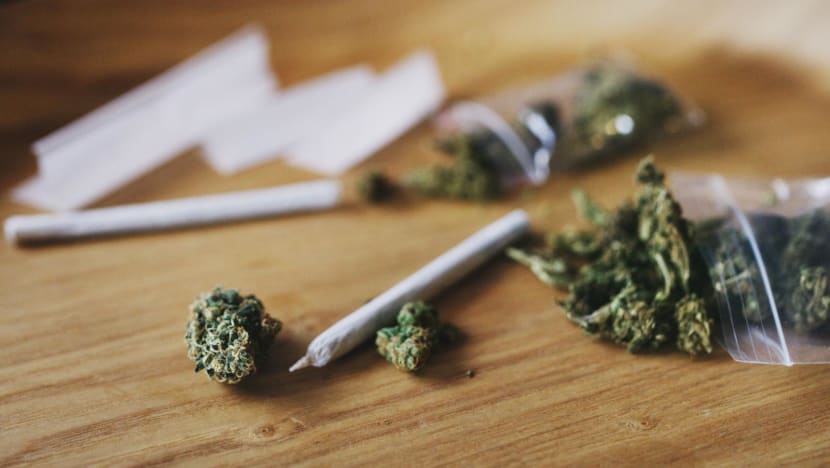HONG KONG: A 32-year-old woman was jailed on Friday (Jul 7) for bringing cannabidiol (CBD) into Hong Kong, the first criminal conviction under the city’s recent blanket ban on the substance.
CBD – a non-psychoactive derivative of the cannabis plant – is touted by its users as reducing pain, stress, anxiety and inflammation.
But the Chinese finance hub in February made it a crime to own, consume or sell CBD, placing it in the same legal category as heroin, cocaine and methamphetamine.
The woman was found to have two bottles of CBD personal care products when clearing customs, after travelling to Hong Kong from the United States on Mar 29, according to authorities, who declined to give her nationality.
She also had in her possession 2.2g of ketamine and 10 syringes.
Commentary: Hong Kong’s ban of CBD products signals strict post-COVID era as city reopens
A magistrate on Friday sentenced her to two months’ imprisonment for two counts of drug possession and one count related to the syringes.
Hong Kong customs said the jail term “reflects the seriousness of the offence and serves as a clear warning to the general public”.
Anyone who possesses or consumes CBD faces up to seven years in jail and fines of up to HK$1 million (US$127,000), while import, export and manufacture attract even stiffer penalties.
Hong Kong officials say CBD must be banned because it could be converted into the illegal compound THC, the main psychoactive constituent of cannabis.
Mainland China banned the use of CBD in cosmetic products in 2021.
Yet CBD remains popular around the world, with gummies, coffee, beers and beauty creams all part of an industry expected to be worth US$47 billion by 2028, up from US$4.9 billion in 2021.
It is legal in the United States and parts of Europe, as well as in some Asian nations such as Japan and Thailand.
Hong Kong officials earlier told AFP they seized 852 suspected CBD items and arrested six people in the first three months of the ban.
The seized items were mainly skin care products, with an estimated total value of around US$16,600, and most were intercepted upon entering Hong Kong, they added.




 New York Teens Are Sipping Less, Choosing More Mindful Vices
New York Teens Are Sipping Less, Choosing More Mindful Vices Massachusetts Cannabis Reform: What’s Changing & Why It Matters
Massachusetts Cannabis Reform: What’s Changing & Why It Matters Maine Hikes Tobacco & Cannabis Taxes to Boost Budget
Maine Hikes Tobacco & Cannabis Taxes to Boost Budget